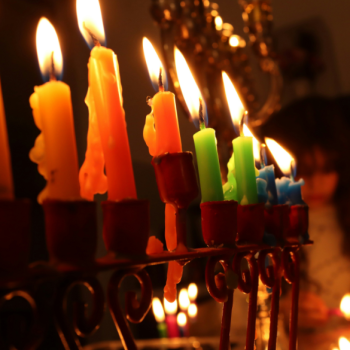I'm not saying they were instantly made to think they had it all wrong. But I hope they felt that this was something to think about. Here is a Christian showing us respect, when we've never been shown respect before. We've only been shown judgment.
Then I did the poem at Urbana in St. Louis over Christmas break. The reception there was also quite positive. It's a Christian crowd, but young Christians, a generation of Christians who have relatively the same outlook as I do.
I've done it in other small gigs here and there. But those are the big three, and the reactions have been very diverse.
I'd like to give you a chance to respond to some of the reactions we have seen online. Let's start with a very positive response, from a colleague of mine: He found it powerful because he has a hard time aligning himself with a movement, the Christian movement, that has done so much wrong. Here he found someone acknowledging all the wrong and nonetheless affirming his Christian identity. Is that the best way to understand the poem?
If that's what he got from it, then that's great. That's how I would explain it. I'm acknowledging why the world thinks of us the way they do. But I'm also identifying myself as that. So, yes, what he said. [Laughter.]
Some have responded to the use of curse words. Two f-bombs are dropped in the Vancouver performance. Some thought this was elevating the desire to be culturally relevant over the desire to be obedient to scripture. Why do you include the language?
Is that one of the launching pads of the controversy? It's funny that that's such a big thing, because that's not actually a part of my poem. It's not written in there to say the F-word. Once or twice or however many times I dropped the f-bomb in that Vancouver scene, it was not planned. As a poet I ad-lib. I always add things here or there. Even if it wasn't written, I say what I'm feeling at that moment.
I haven't watched that recording in a long time. I don't like to watch myself. But if I did drop the F-word in there once or twice, the only reason I can tell you is that there must have been points when I was feeling a little anger or some emotion.
That's the only explanation I have. It's not like I put the curse words in there to endear me to the kids or give me street cred. I could care less about street cred. My poetry speaks for itself. So if there are words in there that people are not okay with, then I'm sorry. I realize there are differences of opinion. There are different means to get to the same ends. My parents are very clean-mouthed people. So I apologize if I offended anyone with my language, but I would want them to realize that I didn't put it in there deliberately. If it's in there, it's because it came out of me and my emotion.
As far as the theological issue, I know that the Bible says don't let filthy talk or malicious language come out of your mouth. But let's be real. If we're going to represent Christ, we need to represent him with all the authenticity of who we are. If we're being genuine, we acknowledge we are not perfect. One of my imperfections is that I have a tendency to curse. It's the culture I was brought up in. I've always been on the sports teams and everything. I'm not justifying it. I'm not. But I'm saying that if you're going to focus in on the fact that I swore, and then deconstruct whether it takes away from the credibility of my piece, then you're losing the whole point. If that's what you're focusing in on, then maybe I need to write a poem called, "I'm Sorry That I Swear."
Another positive response came from Marty Duren, who felt strongly that this poem is not only thought-provoking but also characteristic of the emerging generation. Basically he was saying that if we would understand this generation, we should understand this poem. Do you see what you do in this poem as uniquely expressive of your generation?
I wouldn't say that it uniquely represents my generation of faith. I know of little 7-year-old fundamentalists who run around screaming against abortion. But I do think this generation of Christians as a whole is more liberal-minded, and we're getting more and more liberal as we go along. That's the way we view the world. The secular worldview is getting more liberal, and that liberal mentality works its way into faith as well. So, I would not be surprised if the younger generation identifies more with that poem, because the older generation tends to be more conservative.
I'm not saying that you have to feel what I feel in order to identify with the younger generation. You can go read books by Shaine Claiborne or Dan Kimball or Donald Miller. All these books that are focusing on why this generation -- not just of Christians but of people -- is finding Christianity so hard to stomach. Why are they finding the Christian culture so hard to stomach? There must be a reason why people are trying to bring it back to just Jesus.





